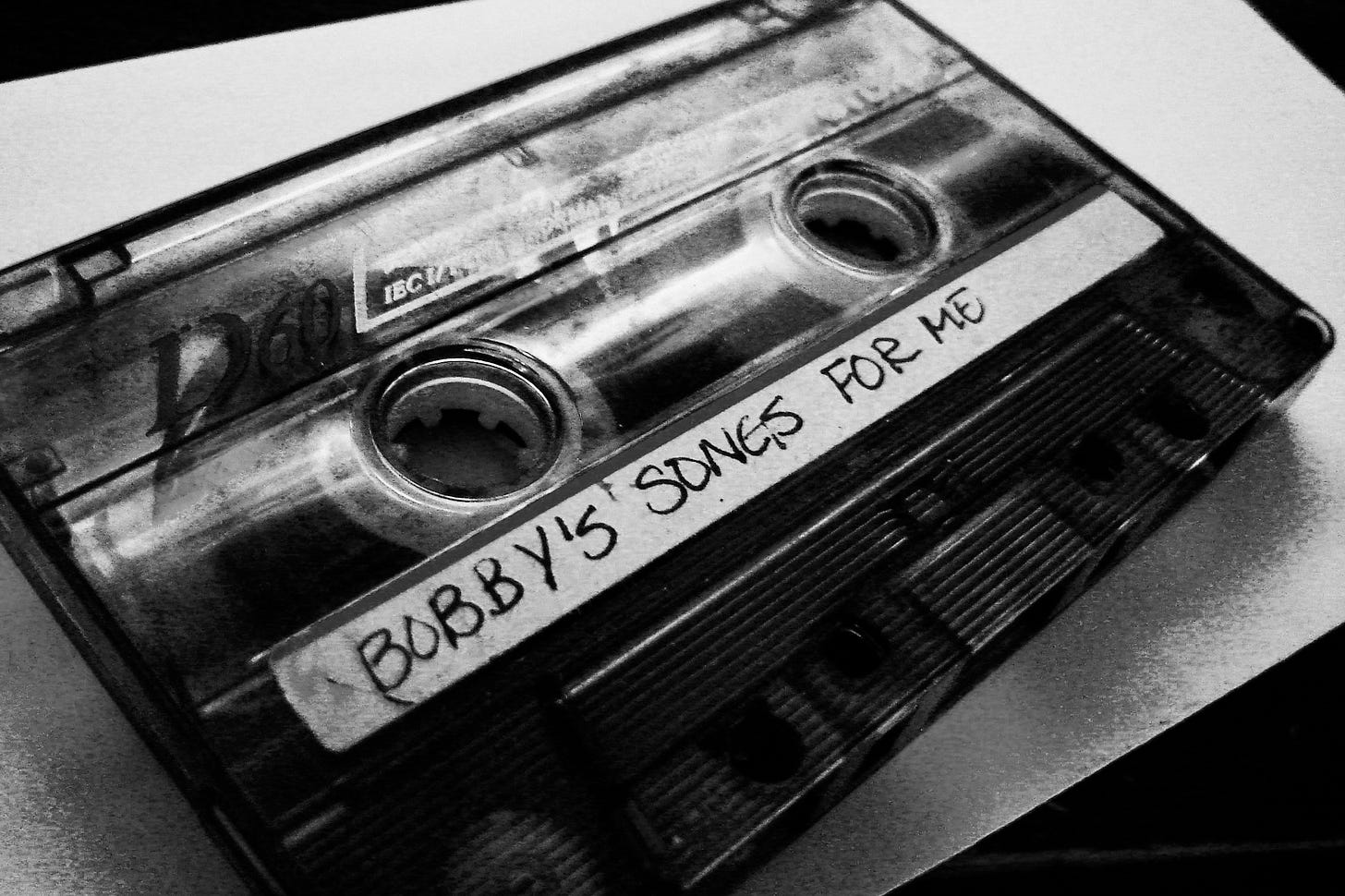Permissionless and One-to-One
In a recent post, Clive Thompson speaks of the humble cassette tape as a medium that had a a weirdly Internet-like vibe. Clive is focusing on how the cassette tape unlocked creativity, but in doing so he describes its properties in a way that is helpful to discussions about online relationships in general.
Clive doesn't speak about cassette tapes being decentralized. In fact, I chuckle as I write that down. Instead he's focused on some core properties. Two I found the most interesting were that cassette tapes allowed one-to-one exchange of music and that they were permissionless. He says:
If you wanted to record a cassette, you didn’t need anyone’s permission.
This was a quietly radical thing, back when cassette recorders first emerged. Many other forms of audio or moving-image media required a lot of capital infrastructure: If you wanted to broadcast a TV show, you needed a studio and broadcasting equipment; the same goes for a radio show or film, or producing and distributing an album. And your audience needed an entirely different set of technologies (televisions, radios, projectors, record players) to receive your messages.
From The Empowering Style of Cassette Tapes
Referenced 2023-11-02T08:01:46-0400
The thing that struck me on reading this was the idea that symmetric technology democratizes speech. The web is based on assymetric technology: client-server. In theory everyone can have a server, but they don't for a lot of reasons including cost, difficulty, and friction. Consequently, the web is dominated by a few large players who act as intervening administrative authorities. They decide what happens online and who can participate. The web is not one-to-one and it is decidedly not permissionless.
In contrast, the DIDComm protocol is symmetric and so it fosters one-to-one interactions that provide meaningful, life-like online relationships. DIDComm supports autonomic identity systems that provide a foundation for one-to-one, permissionless interactons. Like the cassette tape, DIDComm is a democratizing technology.
Photo Credit: Mix Tape from Andreanna Moya Photography (CC BY-NC-ND 2.0 DEED)



The other thing that DIDCOMM and decentralized SSI/Data allows is the ability of service organizations to provide hosting services for individuals to leverage all this - a simple exchange of $$$ for expertise and distributed/replicated/archive storage and SSI/Data services.
That would be my first choice for my personal SSI/Data and family services vs. putting it all on my phone and having to manage personally.